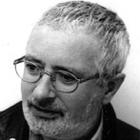
Born in 1943 in Salford (Great Britain) in the bosom of a working class family of Irish immigrants, estudión at Trinity College, Cambridge, Raymond Williams, and was active in the Catholic left. During the sixties, influenced by old Kulturkritik, but also by structuralism begins to forge an original Marxist approach to literature and culture, however, in the eighties, undergo significant transformations. It is at this point that Eagleton distance itself from the poststructuralisms and deconstruction, gradually tending to a style much more critical rhetorical, sarcastic and historical, inspired by Benjamin, Brecht and Bakhtin. His studies of literary theories then reach a more general nature: a critique of all theories that end up turning left in the field of cultural forces that could not be directed towards social and political reality. With cultural apogeode in the postmodern era, Eagleton had to assume the role of rabid critic of illusions and ambiguities of a left that had once driven concepts like 'ideology' and 'hegemony', and now seemed blinded by the 'identity', 'difference' or 'hybridity'.
Eagleton has taught English literature at Oxford University and is currently Professor of Cultural Theory at the University of Manchester. His books are translated into Castilian: An Introduction to Literary Theory (1988), Ideology. An introduction (1997), The Function of Criticism (1998), Walter Benjamin or towards a revolutionary aesthetic (1998), The Illusions of Postmodernism (1997), The Idea of Culture. A policy to cultural conflicts (2001) look, The English Novel: An Introduction (2008), On Evil (2010) and Aesthetics and Ideology (Trotta, 22011). Eagleton has also been lavished as a playwright and novelist.





